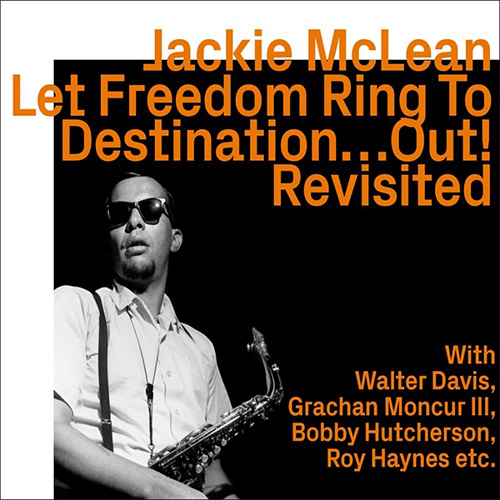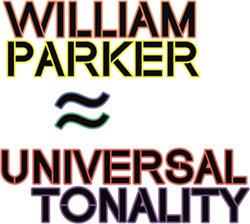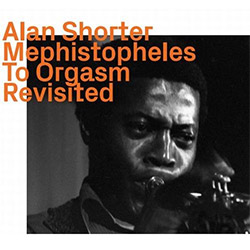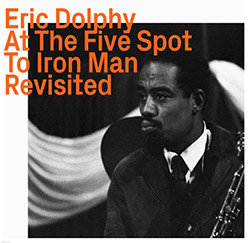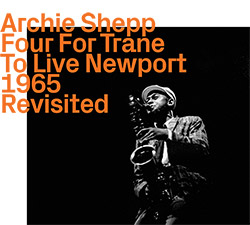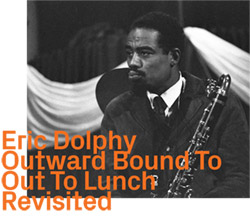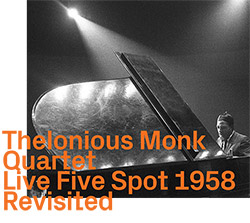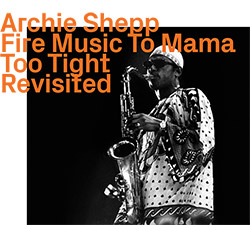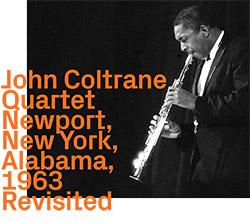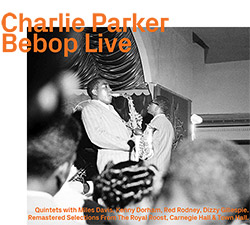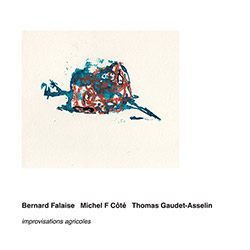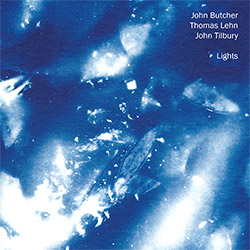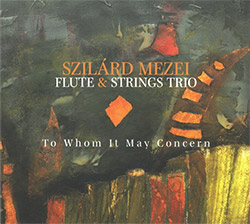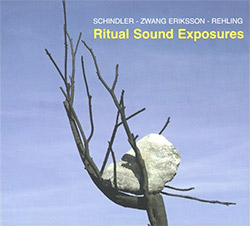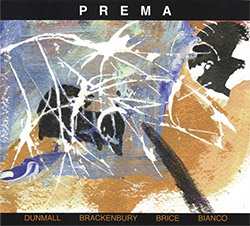
Remastering and reissuing two vital Blue Note albums from alto saxophonist Jackie McLean: 1963's Let Freedom Ring in a quartet with Walter Davis (piano), Herbie Lewis (double bass) & Billy Higgins (drums); then 1964's Destination... Out! in a quintet with Grachan Moncur III (trombone), Bobby Hutcherson (vibes), Larry Ridley (double bass) and Roy Haynes (drums).
In Stock
Quantity in Basket: None
Log In to use our Wish List
Shipping Weight: 2.00 units
Sample The Album:
Jackie McLean-alto saxophone
Walter Davis-piano
Herbie Lewis-double bass
Billy Higgins-drums
Grachan Moncur III-trombone
Bobby Hutcherson-vibraphone
Larry Ridley-double bass
Roy Haynes-drums
Click an artist name above to see in-stock items for that artist.
UPC: 752156116523
Label: ezz-thetics by Hat Hut Records Ltd
Catalog ID: ezz-thetics 1165
Squidco Product Code: 34233
Format: CD
Condition: New
Released: 2023
Country: Switzerland
Packaging: Cardboard Gatefold
Recorded at Van Gelder Studio, in Englewood Cliffs, New Jersey, on March 19th, 1962, and September 20th, 1963.
Let Freedom Ring originally released in 1963 as a vinyl LP on the Blue Note label with catalog code BST 84106; Destination... Out! originally released in 1964 as a vinyl LP on the Blue Note label with catalog code BLP 4165.
"Among post-Parker saxophonists who made a permanent mark on the jazz landscape, Jackie McLean was easily recognizable for his alto's acidic tone and, at his best, an intense, animated point of attack. As a teenager he was devoted to Bird, and after an internship with Miles Davis and bop pianist George Wallington began a prolific and often inspired recording career - between 1955 and '62 he appeared, as leader or sideman, on fifty-eight studio sessions, more than twice as many as the combined totals of Phil Woods and Ornette Coleman (all three approximately the same age). An interesting perspective on McLean's playing at this time was voiced by Steve Lacy, in a 1959 issue of The Jazz Review: "Jackie McLean has the most rhythmic vitality and, so far, the least discipline of all these saxophonists. He expresses his own personality with his sound and has tremendous swing and energy. Hearing his blues sound for me has always been a haunting and at the same time exhilarating experience."
Thus by 1962 McLean had firmly established post-bop credentials, and yet the extension of his playing into what was considered at the time to be avant-garde territory on Let Freedom Ring and his two albums released in 1963, One Step Beyond and Destination... Out!, should be seen as the result of not a sudden leap but a series of incremental steps, beginning as far back as 1956, largely influenced by his involvement with Charles Mingus.
McLean's participation on the Atlantic album Pithecanthropus Erectus - including the club dates and rehearsals in preparation for the recording - brought him into the sphere of Mingus the unconventional composer and bandleader. Two of the pieces on the album were compositions of a programmatic intent, a kind of musique vérité in "A Foggy Day," with sound effects mimicking city bustle, and the title tune's "primitive" depictions of man's self-destructive nature, bordering on chaos. Even the "Portrait of Jackie" which Mingus gifted to McLean is an evocative ballade noir. Moreover, Mingus' vision required his instrumentalists to push beyond their accustomed post-bop licks. While fulfilling this role admirably on the recording, McLean found Mingus' demands out-of-synch with the style of improvisation he was in the process of mastering. As McLean told A.B. Spellman in Black Music: Four Lives, he was "fixed in my ideas and set in my ways. I was strictly from bebop, and knew that was the way it had to be."
Nevertheless, as Mingus' approach required working within and outside of chords as well as loosening the rhythmic constrictions and limits of solos, McLean's view of harmonic and phrasing possibilities broadened. He left Mingus and joined the conservative Jazz Messengers, but took with him an awareness of alternatives to bop orthodoxy that produced an occasional emphasis in his playing over the next few years. Ornette Coleman's emergence in 1958 no doubt triggered in McLean a deeper reconsideration of the open-minded values Mingus had introduced to him, and set the stage for McLean's most radical maneuvers.
There's a double irony in the title Let Freedom Ring. Recorded in 1962, as the Civil Rights movement and confrontations of social protest were picking up steam, we are reminded that the words "let freedom ring" which conclude the first stanza of "My Country 'Tis of Thee" (aka "America") were still a prospect not yet assured all Americans. The second twist is that there are degrees of freedom. Musically speaking, freedom is not a style but an opportunity for individual choice. McLean's phrasing here does break out of bop regularity, symbolically suggesting the emotional connection he feels with his family members to whom the tunes are dedicated, without totally distorting the song form, providing the listener at least a partial comfort zone. This is possibly the most directly personal music McLean ever recorded. The most "shocking" aspect of the saxophonist's freedom, the brief but pungent high-pitched squeals incorporated into his lines as expressive gestures - hinting at joy, sorrow, loss, fear - fulfill a similar function to those same extreme sounds McLean played on "Pithecanthropus Erectus."
It's worth noting that these extreme gestures do not appear in his solos on Destination... Out! Recorded the next year, separated by One Step Beyond, this album is based upon a different premise of freedom, also related to Mingus' precedent. McLean's organization of a larger group coincides with the tone poem allusions and formal challenges of Grachan Moncur III's compositions, which redirect the drama of the soloists from personal freedom to conceptual intuition. And they respond brilliantly, elaborating upon the structural and expressive options implicit in Moncur's designs. Moncur is a robust soloist, and McLean and Hutcherson negotiate the shifting contours with passion and imagination.
Alas, these albums were a short-lived, albeit adventurous detour for McLean, who returned to a more familiar post-bop direction thereafter. But throughout his career his typically vibrant, penetrating solos retained an echo of escape, a jolt of unpredictability, and a searching quality that can be attributed to these explorations on the cusp of freedom."-Art Lange, from the liner notes
Artist Biographies
• Show Bio for Jackie McLean "John Lenwood "Jackie" McLean (May 17, 1931 - March 31, 2006) was an American jazz alto saxophonist, composer, bandleader, and educator, and is one of the few musicians to be elected to the DownBeat Hall of Fame in the year of their death. McLean was born in New York City. His father, John Sr., played guitar in Tiny Bradshaw's orchestra. After his father's death in 1939, Jackie's musical education was continued by his godfather, his record-store-owning stepfather, and several noted teachers. He also received informal tutoring from neighbors Thelonious Monk, Bud Powell, and Charlie Parker. During high school McLean played in a band with Kenny Drew, Sonny Rollins, and Andy Kirk, Jr. (the saxophonist son of Andy Kirk). Along with Rollins, McLean played on Miles Davis' Dig album, when he was 20 years old. As a young man he also recorded with Gene Ammons, Charles Mingus (for Pithecanthropus Erectus), George Wallington, and as a member of Art Blakey's Jazz Messengers. McLean joined Blakey after reportedly being punched by Mingus. Fearing for his life, McLean pulled out a knife and contemplated using it against Mingus in self-defense, but later stated that he was grateful that he had not stabbed the bassist. McLean's early recordings as leader were in the hard bop school. He later became an exponent of modal jazz without abandoning his foundation in hard bop. Throughout his career he was known for a distinctive tone, akin to the tenor saxophone and often described with such adjectives as "bitter-sweet", "piercing", or "searing", a slightly sharp pitch, and a strong foundation in the blues. McLean was a heroin addict throughout his early career, and the resulting loss of his New York City cabaret card forced him to undertake a large number of recording dates to earn income in the absence of nightclub performance opportunities. Consequently, he produced an extensive body of recorded work in the 1950s and 1960s. He was under contract with Blue Note Records from 1959 to 1967, having previously recorded for Prestige. Blue Note offered better pay and more artistic control than other labels, and his work for this organization is highly regarded and includes leadership and sideman dates with a wide range of musicians, including Donald Byrd, Sonny Clark, Lee Morgan, Ornette Coleman, Dexter Gordon, Freddie Redd, Billy Higgins, Freddie Hubbard, Grachan Moncur III, Bobby Hutcherson, Mal Waldron, Tina Brooks and many others. In 1962, he recorded Let Freedom Ring for Blue Note. This album was the culmination of attempts he had made over the years to deal with harmonic problems in jazz, incorporating ideas from the free jazz developments of Ornette Coleman and the "new breed" which inspired his blending of hard bop with the "new thing": "the search is on, Let Freedom Ring". Let Freedom Ring began a period in which he performed with avant-garde jazz musicians rather than the veteran hard bop performers he had been playing with previously. His adaptation of modal jazz and free jazz innovations to his vision of hard bop made his recordings from 1962 on distinctive. McLean recorded with dozens of musicians and had a gift for spotting talent. Saxophonist Tina Brooks, trumpeter Charles Tolliver, pianist Larry Willis, trumpeter Bill Hardman, and tubist Ray Draper were among those who benefited from McLean's support in the 1950s and 1960s. Drummers such as Tony Williams, Jack DeJohnette, Lenny White, Michael Carvin, and Carl Allen gained important early experience with McLean. In 1967, his recording contract, like those of many other progressive musicians, was terminated by Blue Note's new management. His opportunities to record promised so little pay that he abandoned recording as a way to earn a living, concentrating instead on touring. In 1968, he began teaching at The Hartt School of the University of Hartford. He later set up the university's African American Music Department (now the Jackie McLean Institute of Jazz) and its Bachelor of Music degree in Jazz Studies program. His Steeplechase recording New York Calling, made with his son René McLean, showed that by 1980 the assimilation of all influences was complete. In 1970, he and his wife, Dollie McLean, along with jazz bassist Paul (PB) Brown, founded the Artists Collective, Inc. of Hartford, an organization dedicated to preserving the art and culture of the African Diaspora. It provides educational programs and instruction in dance, theatre, music and visual arts. The membership of McLean's later bands were drawn from his students in Hartford, including Steve Davis and his son René, who is a jazz saxophonist and flautist as well as a jazz educator. Also in McLean's Hartford group was Mark Berman, the jazz pianist and broadway conductor of Smokey Joe's Cafe and Rent. In 1979 he reached No. 53 in the UK Singles Chart with "Doctor Jackyll and Mister Funk". This track, released on RCA as a 12" single, was an unusual sidestep for McLean to contribute towards the funk/disco revolution of the late 1970s. Many people, at the time, in the clubs where it was played confused the female singers on the track with his name thinking he was actually female. He received an American Jazz Masters fellowship from the National Endowment for the Arts in 2001 and numerous other national and international awards. McLean was the only American jazz musician to found a department of studies at a university and a community-based organization almost simultaneously. Each has existed for over three decades. McLean died on March 31, 2006, in Hartford, Connecticut after a long illness. In 2006, Jackie McLean was elected to the DownBeat Hall of Fame via the International Critics Poll. He is interred in Woodlawn Cemetery, The Bronx, New York City. A. B. Spellman's 1966 study, Black Music, Four Lives: Cecil Taylor, Ornette Coleman, Herbie Nichols, Jackie McLean, still in print, includes extensive mid-career reflections by McLean on his youth and career to date. Derek Ansell's full-length biography of McLean, Sugar Free Saxophone. details the story of his career and provides a full analysis of his music on record." ^ Hide Bio for Jackie McLean • Show Bio for Walter Davis "Walter Davis Jr. (September 2, 1932 - June 2, 1990) was an American bebop and hard bop pianist. Davis once left the music world to be a tailor, but returned. A soloist, bandleader, and accompanist, he amassed a body of work while never becoming a high-profile name even within the jazz community. Davis played with Babs Gonzales' Three Bips & a Bop as a teen, then moved from Richmond to New York in the early 1950s. He played with Max Roach and Charlie Parker, recording with Roach in 1953. He joined Dizzy Gillespie's band in 1956, and toured the Middle East and South America. He also played in Paris with Donald Byrd in 1958 and with Art Blakey & the Jazz Messengers in 1959. After retiring from music for a while to run his tailor shop, Davis returned in the 1960s, producing records and writing arrangements for a local New Jersey group. He studied music in India in 1979, and played with Sonny Rollins in the early 1970s." ^ Hide Bio for Walter Davis • Show Bio for Billy Higgins "As a member of the groundbreaking Ornette Coleman-led quartet that launched the free jazz renaissance, Billy Higgins remains one of the most important and controversial drummers in music history. An uncommonly versatile and intuitive player, his nimble rhythmic patterns achieved a perfect balance between function and form, inspiring the great trumpeter Lee Morgan to remark "Higgins] never overplays, but you always know he's there." Born October 11, 1936, in Los Angeles, Higgins began his career playing R&B, supporting headliners including Bo Diddley, Amos Milburn, and Jimmy Witherspoon. In 1953 he joined high school friend and trumpeter Don Cherry in the Jazz Messiahs, a group also featuring saxophonist James Clay; three years later, he began his session career, in the months to follow appearing on recording dates led by saxophonist Lucky Thompson and bassist Red Mitchell. Around this time, Higgins and Cherry met Coleman through mutual friend Clay. A virtual unknown, the Texas-born saxophonist was supporting himself with menial jobs while working diligently to hone a musical lexicon liberated from the restraints of conventional harmonic, melodic, and rhythmic structures. Both Higgins and Cherry soon joined Coleman's rehearsal group, which spent years woodshedding before finally securing its first live gigs in 1958, opening for Paul Bley at L.A.'s Hilcrest Club. Audiences were either angered or simply baffled by Coleman's radical sensibility, which he later dubbed "harmolodics," and with the 1958 release of his debut LP, Something Else!!!! The Music of Ornette Coleman, the controversy spread throughout the jazz populace, dividing musicians, critics, and fans alike. Higgins followed Coleman when he relocated the group to New York City in 1959 to begin a residency at the Five Spot Café. Love it or hate it, their music was the talk of the town, and with the addition of new bassist Charlie Haden, Coleman finally began to make concrete the sounds and structures he'd pursued for years. His 1959 Atlantic Records debut, The Shape of Jazz to Come, remains a watershed album by any definition and a schism-creating turning point in the history of the avant-garde. The accolades now heaped on Coleman also launched his collaborators to prominence, and Higgins soon emerged as one of the most sought-after drummers in contemporary jazz, proving a master of both the hard bop sensibility still dominant throughout the jazz community as well as the more fluid and abstract approach of the new generation. When a 1961 drug bust stripped Higgins of his cabaret card, prompting his exit from Coleman's band, he focused on studio work, becoming the unofficial house drummer at Blue Note Records during the label's creative zenith. In the decade to come, Higgins appeared on seminal dates including Dexter Gordon's Go!, Jackie McLean's A Fickle Sonance, and Lee Morgan's The Sidewinder, proving time and again his consummate skill and flexibility; even after Liberty Records acquired Blue Note in 1967, he remained much in-demand, maintaining his position as the premier drummer of the avant-garde with contributions to landmark efforts including Archie Shepp's 1971 LP Attica Blues and Coleman's comeback effort, Science Fiction. Higgins was also a frequent collaborator of pianist Cedar Walton, and with bassist Bill Lee and trumpeter Bill Hardman led the big-band ensemble the Brass Company for several years during the early '70s. After close to two decades on tour and in New York, Higgins settled back in Los Angeles in 1978. The following year he recorded his first-ever session as a leader, the Red label LP Soweto. Higgins recorded a few more headlining sessions in the years to follow but seemed to value most his role as a sideman, supporting saxophonist Joe Henderson and trombonist Slide Hampton during the first half of the 1980s. After appearing behind star and longtime collaborator Dexter Gordon in filmmaker Bertrand Tavernier's 1986 love letter to jazz, 'Round Midnight, Higgins reunited with Coleman, Cherry, and Haden for a 1987 tour that culminated in a new studio album, In All Languages. The following year Higgins teamed with poet Kamau Daaood to found the World Stage, a storefront enclave that hosted creative workshops, community activities, and live performances. He regularly tapped his extensive professional network to lure many of the biggest names in jazz to the World Stage site both as performers and as tutors, and ultimately Higgins turned his attention to teaching in a formal setting as well, serving on the jazz faculty at UCLA. Higgins spent much of the remainder of his life battling liver disease, a manifestation of the hepatitis he contracted decades earlier. In March 1996, he underwent a liver transplant and when his body rejected the new organ, he was forced to submit to a second procedure just 24 hours later. Higgins nevertheless returned to music a few months later, traveling to New York to renew his collaboration with Coleman. However, by 2001 his new liver began to fail, and while waiting to find a donor, he succumbed to pneumonia on May 3. Higgins was just 64 years old at the time of his death."-Jason Ankeny, Blue Note Records ^ Hide Bio for Billy Higgins • Show Bio for Grachan Moncur III "Grachan Moncur III (born June 3, 1937) is an American jazz trombonist. He is the son of jazz bassist Grachan Moncur II and the nephew of jazz saxophonist Al Cooper. Born in New York City (his father's father was from the Bahamas) and raised in Newark, New Jersey, Grachan Moncur III began playing the cello at the age of nine, and switched to the trombone when he was 11. In high school he attended the Laurinburg Institute in North Carolina, the private school where Dizzy Gillespie had studied. While still at school he began sitting in with touring jazz musicians on their way through town, including Art Blakey and Jackie McLean, with whom he formed a lasting friendship. After high school Moncur toured with Ray Charles (1959Ð62), Art Farmer and Benny Golson's Jazztet (1962), and Sonny Rollins. He took part in two classic Jackie McLean albums in the early 1960s, One Step Beyond and Destination... Out!, to which he also contributed the bulk of compositions and which led to two influential albums of his own for Blue Note Records, Evolution (1963) with Jackie McLean and Lee Morgan, and Some Other Stuff (1964) with Herbie Hancock and Wayne Shorter. Moncur joined Archie Shepp's ensemble and recorded with other avant-garde players such as Marion Brown, Beaver Harris and Roswell Rudd (the other big name in American free jazz trombone). During a stay in Paris in the summer of 1969, he recorded two albums as a leader for the famous BYG Actuel label, New Africa and Aco Dei de Madrugada, as well as appearing as a sideman on numerous other releases of the label. In 1974, the Jazz Composer's Orchestra commissioned him to write Echoes of Prayer (1974), a jazz symphony featuring a full orchestra plus vocalists and jazz soloists. His sixth album as a leader, Shadows (1977) was released only in Japan. Unfortunately, he was subsequently plagued by health problems and copyright disputes and recorded only rarely. Through the 1980s he recorded with Cassandra Wilson (1985), played occasionally with the Paris Reunion Band and Frank Lowe, appeared on John Patton's Soul Connection (1983), but mostly concentrated on teaching. In 2004 he re-emerged with a new album (Exploration) on Capri Records featuring Grachan's compositions arranged by Mark Masters for an octet including Tim Hagans and Gary Bartz." ^ Hide Bio for Grachan Moncur III • Show Bio for Bobby Hutcherson "Bobby Hutcherson was born January 27, 1941, in Los Angeles. He studied piano with his aunt as a child, but didn't enjoy the formality of the training; still, he tinkered with it on his own, especially since his family was already connected to jazz: his brother was a high school friend of Dexter Gordon and his sister was a singer who later dated Eric Dolphy. Everything clicked for Hutcherson during his teen years when he heard a Milt Jackson record; he worked until he saved up enough money to buy his own set of vibes. He began studying with Dave Pike and playing local dances in a group led by his friend, bassist Herbie Lewis. After high school, Hutcherson parlayed his growing local reputation into gigs with Curtis Amy and Charles Lloyd and in 1960, he joined an ensemble co-led by Al Grey and Billy Mitchell. In 1961, the group was booked at New York's legendary Birdland club and Hutcherson wound up staying on the East Coast after word about his inventive four-mallet playing started to spread. Hutcherson was invited to jam with some of the best up-and-coming musicians in New York: hard boppers like Grant Green, Hank Mobley, and Herbie Hancock, but most importantly, forward-thinking experimentalists like Jackie McLean, Grachan Moncur III, Archie Shepp, Andrew Hill, and Eric Dolphy. Through those contacts, Hutcherson became an in-demand sideman at recording sessions, chiefly for Blue Note. Hutcherson had a coming-out party of sorts on McLean's seminal "new thing" classic One Step Beyond (1963), providing an unorthodox harmonic foundation in the piano-less quintet. His subsequent work with Dolphy was even more groundbreaking and his free-ringing, open chords and harmonically advanced solos were an important part of Dolphy's 1964 masterwork Out to Lunch. That year, he won the DownBeat readers' poll as Most Deserving of Wider Recognition on his instrument. Hutcherson's first shot as a leader came with 1965's Dialogue, a classic of modernist post-bop with a sextet featuring some of the hottest young talent on the scene - most notably Freddie Hubbard, Sam Rivers, and Andrew Hill, although drummer Joe Chambers would go on to become a fixture on Hutcherson's '60s records (and often contributed some of the freest pieces he recorded). A series of generally excellent sessions followed over the next few years, highlighted by 1965's classic Components (which showcased both the free and straight-ahead sides of Hutcherson's playing) and 1966's Stick-Up! In 1967, he returned to Los Angeles and started a quintet co-led by tenor saxophonist Harold Land, which made its recording debut the following year on Total Eclipse. Several more sessions followed (Spiral, Medina, Now) that positioned the quintet about halfway in between free bop and mainstream hard bop - advanced territory, but not entirely fashionable at the time. Thus, the group didn't really receive its due and dissolved in 1971. By that point, Hutcherson was beginning a brief flirtation with mainstream fusion, which produced 1970s funky but still sophisticated San Francisco (named after his new base of operations). By 1973, however, he'd abandoned that direction, returning to modal bop and forming a new quintet with trumpeter Woody Shaw that played at that summer's Montreux Jazz Festival (documented on Live at Montreux). In 1974, he re-teamed with Land and over the next few years, he continued to record cerebral bop dates for Blue Note despite being out of step with the label's more commercial direction. He finally departed in 1977 and signed with Columbia, where he recorded three albums from 1978-1979 (highlighted by Un Poco Loco). Adding the marimba to his repertoire, Hutcherson remained active throughout the '80s as both a sideman and leader, recording most often for Landmark in a modern-mainstream bop mode. He spent much of the '90s touring rather than leading sessions; in 1993, he teamed with McCoy Tyner for the duet album Manhattan Moods. Toward the end of the decade, Hutcherson signed on with Verve, for whom he debuted in 1999 with the well-received Skyline. In 2004, Hutcherson joined the San Francisco Jazz Collective, touring with the ensemble for several years. In 2007, he released the album For Sentimental Reasons, which featured pianist Renee Rosnes. Two years later, Hutcherson returned with the John Coltrane-inspired Wise One. The concert album, Somewhere in the Night, recorded at Dizzy's Club Coca-Cola at Lincoln Center, appeared in 2012. In 2014, Hutcherson joined organist Joey DeFrancesco and saxophonist David Sanborn for the Blue Note session Enjoy the View."-Steve Huey ^ Hide Bio for Bobby Hutcherson • Show Bio for Roy Haynes "Roy Owen Haynes (born March 13, 1925) is an American jazz drummer. He is among the most recorded drummers in jazz. In a career lasting over 75 years he has played swing, bebop, jazz fusion, avant-garde jazz and is considered the father of modern jazz drumming. "Snap Crackle" was a nickname given to him in the 1950s. He has led bands such as the Hip Ensemble. His albums Fountain of Youth and Whereas were nominated for a Grammy Award. He was inducted into the Modern Drummer Hall of Fame in 1999. His son Graham Haynes is a cornetist; his son Craig Holiday Haynes and grandson Marcus Gilmore are both drummers. " ^ Hide Bio for Roy Haynes
4/24/2024
Have a better biography or biography source? Please Contact Us so that we can update this biography.
4/24/2024
Have a better biography or biography source? Please Contact Us so that we can update this biography.
4/24/2024
Have a better biography or biography source? Please Contact Us so that we can update this biography.
4/24/2024
Have a better biography or biography source? Please Contact Us so that we can update this biography.
4/24/2024
Have a better biography or biography source? Please Contact Us so that we can update this biography.
4/24/2024
Have a better biography or biography source? Please Contact Us so that we can update this biography.
Track Listing:
1. Melody For Melonae 13:23
2. I'll Keep Loving You 6:20
3. Rene 10:04
4. Omega 8:32
5. Love And Hate 8:25
6. Esoteric 9:06
7. Kahlil The Prophet 10:26
8. Riff Raff 7:10
Hat Art
Improvised Music
Jazz
Free Improvisation
Quartet Recordings
Quintet Recordings
NY Downtown & Metropolitan Jazz/Improv
Melodic and Lyrical Jazz
Jazz Reissues
New in Improvised Music
Recent Releases and Best Sellers
Search for other titles on the label:
ezz-thetics by Hat Hut Records Ltd.


